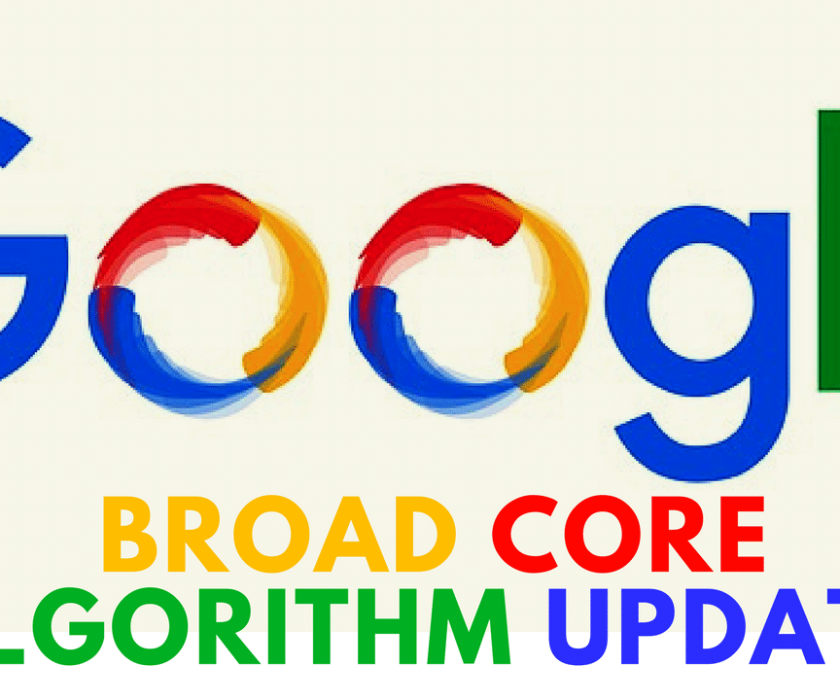Data has a crucial impact on sales and marketing, empowering businesses to enhance decision-making, streamline processes, and ultimately boost revenue. It is imperative for organizations to have reliable access to precise data that can be utilized to enhance their functioning.
In English, this article aims to analyze how data impacts the level of success in sales and marketing endeavors. It will cover a range of aspects, including customer segmentation, targeting, and personalization tactics.
Companies utilize data to understand their customer’s behavior better, enabling them to develop more impactful campaigns. Furthermore, data-driven strategies enable organizations to evaluate the efficiency of their initiatives and make necessary adjustments.
Having this information available allows businesses to customize content and communication more accurately, leading to cost savings by avoiding inefficient actions. In a nutshell, data serves as the groundwork for effective sales and marketing strategies.
Customer Segmentation And Targeting
Data is extremely important in sales and marketing, especially when it comes to dividing customers into specific groups and focusing on them.
Companies can enhance their comprehension of their customer’s requirements and inclinations by employing predictive analytics. This information is subsequently utilized to develop customized campaigns catering to every consumer group or demographic.
Companies make use of dynamic pricing strategies, which involve analyzing customer profitability to determine the most suitable prices for different customer segments based on their willingness to pay. This approach enables companies to optimize their profits.
Understanding customer behavior through data is extremely valuable as it offers crucial insight on how to fulfill their requirements effectively. By studying past transactions, companies can recognize patterns that guide them in creating targeted promotions and making strategic decisions for product development.
In addition, utilizing machine learning algorithms allows businesses to make more precise predictions about future purchasing behaviors compared to previous methods.
When companies have reliable market intelligence, they can make better decisions on how to distribute their resources in various aspects of their business, like sales, marketing, and production planning. By understanding potential opportunities and threats in the market, companies can improve their performance and reduce the risks that come with uncertainty in the marketplace.

Personalization Strategies
Customer segmentation and targeting are crucial marketing practices that enable companies to recognize different types of customers, focus on their most lucrative clientele, and enhance overall sales performance. Nevertheless, these techniques’ effectiveness depends on their ability to customize and cater to the unique requirements and expectations of individual customers.
Marketers have been utilizing AI-powered automation and predictive analytics to tailor campaigns and effectively connect with audiences. AI-powered automation empowers marketers to generate personalized content for each customer based on their behaviors, preferences, purchase history, and other relevant factors. Through automated data collection and continual analysis using machine learning algorithms, marketers can deliver highly pertinent messages that will better resonate with their customers.
Marketers can use predictive analytics to forecast future trends based on past behavior patterns, allowing companies to address customer needs proactively. This empowers businesses to strategically engage with potential customers before they even realize their own requirements, utilizing targeted communications across various channels.
Personalization strategies allow businesses to create a customized customer experience based on their interests and preferences. By utilizing data from automated systems or predictive analytics platforms, companies can understand what resonates with different audience segments and tailor their messaging accordingly. These efforts drive higher conversion rates and foster greater loyalty among existing customers, as they feel understood and appreciated.
Data-Driven Campaigns
Sales and marketing strategies are increasingly incorporating data-driven campaigns as more organizations understand the positive impact they can have on improving results.
Lead scoring is a beneficial tool that helps companies determine the worth of acquired leads from different sources, enabling them to make well-informed decisions on the most effective allocation of resources.
Using A/B testing allows you to effectively compare two versions of content or design elements in order to identify which one better connects with customers.
Data analysis is crucial in maintaining the success of campaigns driven by data. By monitoring important indicators such as website traffic and conversions, companies are able to improve their strategies accordingly.
Various software solutions are accessible that streamline tasks such as dividing leads, allowing marketers to obtain more comprehensive knowledge about customer actions and preferences.
Moreover, predictive modeling aids in predicting upcoming patterns and actions, enabling the customization of campaigns to adapt to shifts in market conditions.
To make the most of these effective tools, it is crucial for teams to engage in thorough planning from the beginning. This involves setting clear goals, determining the metrics by which success will be measured, deciding how progress will be assessed throughout the entire process, and pondering the potential long-term consequences for their strategy.
By receiving assistance from knowledgeable experts who grasp technology and business goals, one can create initiatives driven by data that yield practical outcomes.
Measuring Effectiveness
Using data in sales and marketing can offer valuable insights that enable organizations to evaluate their effectiveness.
For example, using data-driven insights to create customer profiles helps in creating lead-scoring models that identify the most promising leads for conversion.
This supports organizations in efficiently distributing resources and also improves their marketing strategies by recognizing trends and patterns in consumer purchasing behavior.
In addition, automation tools that employ predictive analytics enable marketers to more effectively identify customer requirements and take proactive steps to seize opportunities, ultimately maximizing the overall return on investment (ROI).
Using these solutions, businesses can monitor the performance of their campaigns by measuring metrics like the number of visits to their website or the rate at which users click on campaign-related links. This information is crucial for determining the effectiveness and success of a campaign.
Examining this data makes it possible to determine whether there has been any progress compared to previous methods or if any modifications are necessary.
Therefore, by comprehending the way customers engage with marketing efforts, companies can make informed choices about future investments and guarantee their continued competitiveness within their respective industries.

Cost Reduction Benefits
Evaluating the success of sales and marketing campaigns relies on effectively measuring their effectiveness. By analyzing trends, one can gain valuable insight into how these campaigns have improved customer engagement, boosted sales, and gained a larger market share. Moreover, predictive analytics can be utilized to foresee customer needs and pinpoint opportunities for increased efficiency.
Using insights derived from data analysis offers organizations a significant chance to cut expenses and optimize performance. By maximizing the efficiency of their existing resources, companies can focus on their most profitable customers and customize their products or services accordingly. As a result, customers are more satisfied at a reduced cost.
Moreover, the examination of feedback provided by customers and employees can aid in the implementation of cost-cutting measures which enhance operational procedures without compromising on quality measures. Besides, customer data analysis can enable businesses to develop intricate profiles for different segments of the overall population and tailor messages that cater to individual preferences.
Utilizing this method has been extremely valuable in building loyalty among existing customers and also in reaching out to potential consumers who may need to be made aware of their need for your organization’s offerings. As a result, companies gain an edge over their competitors by using data intelligently to increase visibility and reduce expenses.
Frequently Asked Questions
What is the most effective method for storing customer information?
Customer segmentation heavily relies on data retention, as it permits marketers to construct profiles that precisely mirror customers’ current behavior. Furthermore, it empowers them to recognize trends and patterns in customer engagements with the company or brand.
Businesses can use this information to create successful marketing plans and efficiently reach their target customers. To achieve this goal, storing customer data in a well-functioning database system like Salesforce CRM is recommended.
Salesforce offers an easy-to-use interface, automated workflows, and advanced analytics features that allow users to personalize their data storage options while maintaining the highest levels of security and privacy.
How Can I Ensure That My Data Is Secure?
Safeguarding customer data is a crucial factor to bear in mind when ensuring data security.
Data governance involves putting in place suitable measures and regulations to safeguard data privacy and integrity, thus allowing authorized parties to access the data as needed.
Companies should contemplate the adoption of a comprehensive policy that includes the utilization of encryption technology and access control measures, like multifactor authentication.
In addition, it is important for organizations to consistently examine their data protection protocols to detect any shortcomings in their current methods and take appropriate measures to resolve them.
What is the most efficient way to gather data at a low cost?
Examining patterns and extracting valuable knowledge through data gathering is an economical approach. The utilization of automated procedures, like those offered by software applications, simplifies the rapid and precise accumulation of substantial data like never before.
Furthermore, numerous companies are adopting predictive analytics, which employs machine learning algorithms for the purpose of discovering concealed patterns within the data. By utilizing these technologies, businesses can significantly minimize their operational expenses while acquiring a comprehensive understanding of customer behavior and preferences.
What kinds of software tools are there that can assist with the analysis of data?
Sales and marketing operations require data analysis, and software tools like machine learning and predictive analytics are beneficial for revealing potential trends and insights.
Machine learning algorithms can efficiently analyze large quantities of data to discover patterns that could signify specific behaviors or future developments.
Predictive analytics utilize these discoveries to forecast future occurrences by analyzing past data.
These tools offer organizations essential data that can be utilized to shape their future strategies.
What methods can I use to evaluate the effectiveness of data-driven campaigns?
Assessing the effectiveness of data-driven campaigns is crucial in attaining the intended outcomes.
Monitoring and evaluating the ROI trends can be a valuable method to measure the success of these campaigns, enabling adjustments to be made if needed to enhance their effectiveness.
Moreover, gaining comprehension of customer actions through various mediums can serve as a means to detect any possible drawbacks or achievements, which can offer valuable knowledge on how to enhance future campaigns for improved outcomes.
Conclusion
The significance of data in sales and marketing triumph has grown in recent times. It is crucial for businesses to effectively protect, gather, retain, and examine customer data in order to benefit from the useful information it offers fully.
Businesses can improve their campaigns by investing in the appropriate tools and methods to gather, save, and examine customer data, giving them a deeper comprehension of their customer’s requirements and preferences.
In addition, businesses can utilize analytics software to measure the effectiveness of these campaigns and obtain valuable information on the performance of their strategies.
To summarize, utilizing effective data collection methods and powerful analytical tools can greatly enhance any business’s potential for successful sales and marketing outcomes.




